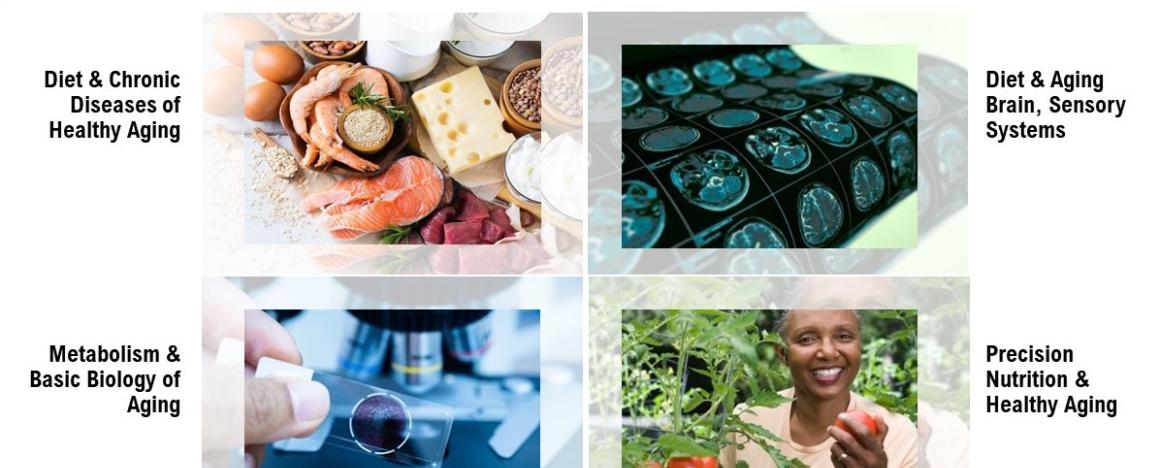Research Directives

The work of the Jean Mayer USDA Human Nutrition Research Center on Aging at Tufts University (HNRCA) promotes Precision Health Aging with its mission rooted in the understanding that nutrition is a cornerstone of health and a preventive measure against chronic diseases.
Building on a 45-year legacy of targeting lifestyle and genetics to prevent diseases like diabetes and osteoporosis, the HNRCA is now pioneering a geoscience-infused approach. Geroscience, which studies the relationship between aging and disease, is integral to Precision Healthy Aging. By understanding how aging processes contribute to diseases, we can develop targeted interventions that not only treat but also prevent multiple age-related conditions, thereby promoting a healthier, longer life. This evolution signifies our commitment to decoding the complex interplay of factors influencing aging. By harnessing artificial intelligence and data sciences, we aim to personalize prevention strategies, slow age-related deterioration, and foster a healthier, longer life for each individual.
This research focuses on extending healthspan – typically defined as the period of life spent in good health, free from chronic diseases – is represented by four directives and success comes from the diverse expertise and collaborative spirit used to tackle the complexities of aging and nutrition.
- Metabolism & Basic Biology of Aging
- Diet & Chronic Diseases of Healthy Aging
- Diet & Aging Brain, Sensory Systems
- Precision Nutrition & Healthy Aging
Why Research on Aging?
The aging of the American population is an unprecedented demographic shift, with nearly 56 million Americans aged 65 and older. By 2034, this number is projected to increase to 77 million, surpassing the number of individuals under 18 years. The implications for public health are significant, as aging is associated with an increased risk of chronic diseases such as cardiovascular disease, type 2 diabetes, neurodegenerative disorders, and cancer. A major concern of HNRCA investigators is the growing gap between lifespan and healthspan – typically defined as the period of life spent in good health, free from the chronic diseases and disabilities of aging. The HNRCA is committed to addressing these challenges and finding effective interventions to promote healthy aging for all individuals.
Age-related chronic diseases are the leading public health challenge of the 21st century. Diet quality and physical activity behaviors are major determinants for the development and progression of age-related chronic diseases and are central to the maintenance of physical and mental health, independence, and quality of life. To enhance healthy aging in our society, HNRCA scientists are advancing the understanding of the scientific basis for how diet quality and physical activity influence cellular function, physiology, metabolism, and eating behaviors.